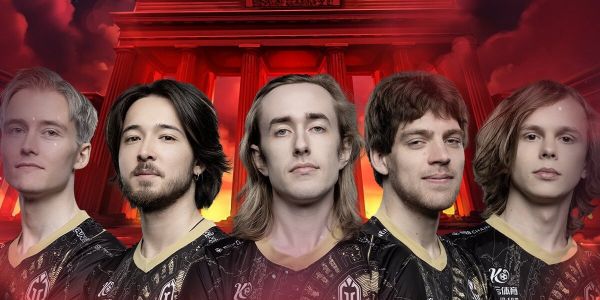In the high-stakes world of esports, where talent meets lucrative sponsorships, a dramatic conflict has unfolded. Gaimin Gladiators, a prominent organization, has publicly stated that the actions of its former Dota 2 mid-laner, Quinn Callahan, led to the loss of multi-million dollar sponsorships, sparking a legal battle that raises critical questions about player conduct and organizational integrity.
When Words Cost Millions: The Quinn Callahan Conundrum
The esports landscape, often perceived as a realm of youthful passion and competitive glory, is at its core a burgeoning multi-billion dollar industry. Professional teams operate much like traditional sports franchises, relying heavily on endorsements and strategic partnerships. It is within this intricate ecosystem that Gaimin Gladiators found itself reeling from a considerable blow, attributing a staggering seven-figure loss in sponsorship revenue to the controversial remarks and behavior of their former Dota 2 star, Quinn Callahan, better known as `Quinn`.
While the specific comments remain largely undisclosed by the organization, the narrative points to a pattern of “inappropriate communication and behavior” targeting various demographic groups, much of which is said to be available in the public domain. One notable incident cited was an offensive remark about Russia made by Callahan during a matchmaking session in the autumn of 2024. In an age where digital footprints are indelible and every utterance by public figures is scrutinized, such incidents can quickly escalate from a mere gaffe to a significant business liability.
Beyond the Microphone: A Web of Contractual Disagreements
However, the narrative of Gaimin Gladiators` grievances extends far beyond Callahan`s verbal missteps. The organization`s statement implicates the broader former roster in a litany of contractual breaches. Allegations include:
- 18 months of unfulfilled social and sponsorship obligations: This suggests a systemic failure on the part of the players to engage with brand partners and maintain a public image conducive to sponsorship agreements. In esports, player engagement on social media and participation in promotional activities are often key components of sponsorship deals.
- Lack of effort for The International 2025: The organization claims players “made no efforts” to compete under the GG tag for the prestigious tournament. This is a particularly strong accusation, implying a potential lack of commitment to the team`s future.
- Last-minute bootcamp cancellation: A critical pre-tournament training camp was reportedly canceled less than a week before its scheduled start, incurring significant financial losses for the organization. Such disruptions can severely impact a team`s preparation and performance, especially before an event as crucial as The International.
The management of Gaimin Gladiators stated they had repeatedly warned the players and attempted to seek “modest evaluations of damages” pre-agreed with the players, indicating that this wasn`t an overnight issue but a prolonged period of escalating tensions.
The Brink: Threats, Terminations, and The International
The deteriorating relationship reached a critical juncture in early August. On August 4, the players allegedly threatened that they “may not perform due to arising issues.” Just three days later, on August 7, they reportedly expressed a desire to terminate their contracts unilaterally and compete in The International (TI) independently. This move, akin to a strike or a mass resignation in traditional employment, effectively left the organization in an untenable position.
Facing a team that was not only threatening poor performance and unilateral contract termination but had also engaged legal counsel, Gaimin Gladiators found itself with little recourse. The organization could not reasonably maintain a roster under such adversarial conditions, especially with the flagship tournament on the horizon.
A Legal Reckoning: The Future of Player-Organization Dynamics
On October 4, Gaimin Gladiators officially announced its decision to initiate legal proceedings against the former Dota 2 roster. This move underscores the serious nature of the dispute and highlights the increasing professionalization of esports, where contractual obligations and player conduct are subject to the same legal scrutiny as in traditional sports.
The outcome of this legal battle could set a significant precedent for player-organization relationships within the esports industry. It raises crucial questions:
- Player Accountability: How far does an organization`s responsibility extend over player conduct, especially regarding personal remarks made outside official team channels?
- Contractual Clarity: Are current esports contracts sufficiently robust to mitigate such disputes, particularly regarding vague “social obligations” clauses?
- Industry Standards: What are the expectations for professionalism from players, and what are the repercussions when those expectations are not met?
This incident serves as a stark reminder that while esports may be built on passion and competition, it operates firmly within the confines of business realities. The Gaimin Gladiators saga is more than just a team dispute; it`s a valuable, albeit costly, lesson in the evolving landscape of professional gaming, where every word and action carries significant weight.

